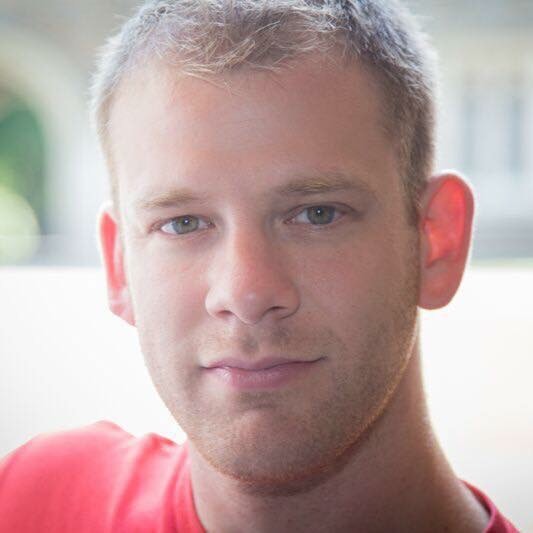Get to Know Nick Sansone
Public Citizen News / September-October 2023
By Evelyn Letona Robles

This article appeared in the September/October 2023 edition of Public Citizen News. Download the full edition here.
Nicholas “Nick” Sansone, an attorney at Public Citizen Litigation Group since November 2022, is a well-traveled individual with an impressive range of interests. After growing up in a small town near Champaign, Ill., he moved to New York City to pursue acting. An interruption in his acting studies led him to swerve and become a wildland firefighter in Denver. He then began college, but continued to act, including with the Moscow Art Theater in Russia for a short period. College gave Sansone the opportunity to focus more on writing, which he had always been passionate about. After graduating, he did another stint in forestry and firefighting—this time in Sacramento—and moved to western Massachusetts to work as a writing instructor and pursue a master’s degree in creative writing. It was there that he began to think about law school for the first time, as a way of using his writing skills to advocate for social change. After four years of teaching, he swerved again and enrolled in Harvard Law School. Since then, he has clerked for judges in Portland, Maine; New York City; and Washington, D.C. He spent time as an appellate advocacy instructor at Georgetown University Law Center and as an attorney at the Equal Employment Opportunity Commission before coming to Public Citizen. Sansone remains passionate about writing and forming close relationships with clients. Although presenting oral arguments can make him nervous, it’s a fun callback to his origins in theater. Outside of work, he loves cooking, dancing, traveling domestically and internationally, attending hot yoga classes on H Street, reading, and finding good spots to perform bad karaoke.
If you could describe yourself in one word, what would it be?
Enthusiastic. I have a wide range of interests, and I pursue them as vigorously as I can. I think I take the same approach to my personal relationships. During the pandemic, I came to realize how important it is to be proactive about maintaining social ties, so I try to be good about frequently letting the people in my life know how much they mean to me and going out of my way to ensure that we can spend quality time together.
How would you describe the work that you do for Public Citizen?
Like my colleagues, I try to persuade judges to write opinions that interpret the law in a way that is favorable to consumers, workers, and economically or socially marginalized communities. While I don’t yet have a specific focus, much of my work so far has been defending the work of government agencies like the U.S. Food and Drug Administration, Securities and Exchange Commission, and Federal Trade Commission that work to protect the public against unfair or unsafe conditions. I also recently briefed and argued a case addressing the question of whether companies that violate data privacy laws through their online activities can be held accountable everywhere they operate online, or whether injured consumers must be limited to suing them in their place of incorporation.
Are there any overlooked aspects of the legal field that you want to bring more attention to?
The news lately has been full of reports about the crises that ambitious right-wingers have been provoking in all sorts of areas, from the environment to health care to racial and gender justice. These crises are well worth our attention and deep concern. But it’s important that we not lose sight of the less headline-grabbing ways that corporations have been continually accumulating greater economic and political power. It’s right and necessary to feel rage over the racist immigration policies that our political leaders from both major parties have implemented or the cravenness with which they have failed to confront climate disaster or the shocking levels of gun violence in our country. But it can be harder to notice—let alone invest precious emotional resources in—a company’s decision to market a product that’s not quite as safe as it could be or to insulate itself from lawsuits by burying an unfair arbitration agreement in its terms of service. But the accumulation of these corporate decisions over time can cause enormous damage to consumers’ safety and financial wellbeing. So I hope that we do not lose sight of the underlying structural forces that promote our economically imbalanced society as we continue the important work of responding to the more immediate crises as they arise.